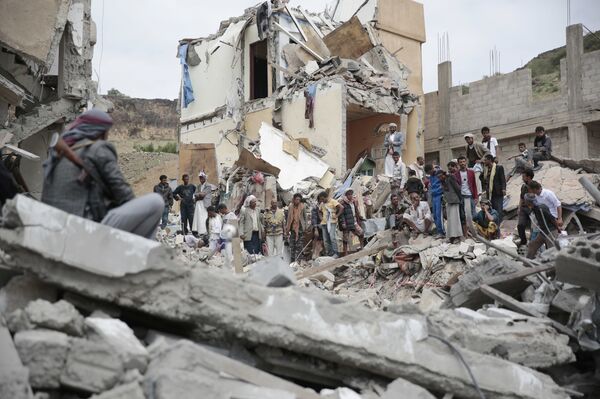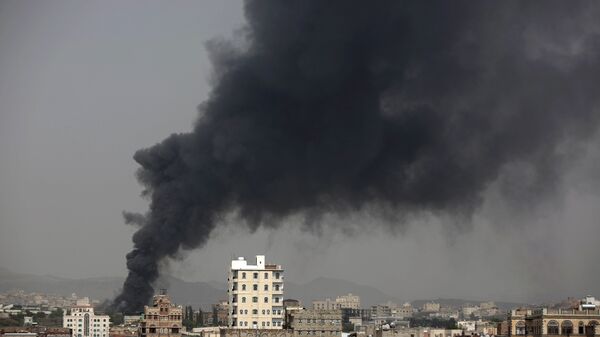In his address to reporters on Thursday Guterres’ spokesman Stephane Dujarric said the UN chief had written a letter to the Saudi UN envoy Abdallah al-Mouallimi asking the Saudi authorities to reopen Yemeni land and sea borders, shut down earlier this month over security and arms smuggling concerns.
Guterres and his officials are "heartbroken at the scenes we are seeing from Yemen and the risk of continued suffering of the Yemeni people," Dujarric added. He called the war "man-made", underscoring the unprovoked conflict has caused an enormous death toll of over 12,000 Yemenis since it began in March 2015.
In his letter to Mouallimi, Guterres demanded that the Saudis allow UN flights to the Yemeni capital Sana as well as Aden, and to end the blockade of the key ports of Hudaydah and Salif. He also spoke in favor more thorough inspections at the Hudaydah port, after Saudi Arabia claimed that ships docking there were smuggling arms into rebellious Houthi-controlled areas.

Riyadh sealed the borders on November 5 in retaliation for a ballistic missile intercepted a stone’s throw away from the capital and allegedly fired by the Iranian-backed Houthis. The blockade, having caused a massive public outcry has been partially lifted, though humanitarian officials say more action has to be taken.
Three UN agencies warned Thursday that "the lives of millions" were at stake if aid is not immediately let in. According to Save the Children, 130 children are dying every day.
"Together, we issue another urgent appeal for the coalition to permit the entry of lifesaving supplies to Yemen in response to what is now the worst humanitarian crisis in the world," reads a joint statement from the chiefs of the World Food Program, UNICEF and the World Health Organization, as reported by Time magazine.
"The supplies, which include medicines, vaccines and food, are essential to staving off disease and starvation. Without them, untold thousands of innocent victims, among them many children, will die."
Meanwhile Yemen has officially topped the UN list of today's humanitarian crises, with 17 million people in dire need of food, seven million of whom fully rely on imported food.
"The clock is ticking and stocks of medical, food and other humanitarian supplies are already running low," the UN joint statement reads. "The cost of this blockade is being measured in the number of lives that are lost."
The Saudi-Yemeni standoff started following a failed political coup in 2015, as the Saudis attempted to reinstall the former government, their devoted allies, and crush the Houthi rebel group.
READ MORE: NGOs Join UN Call to Lift Saudi-Led Blockade Threatening Yemen With Starvation


